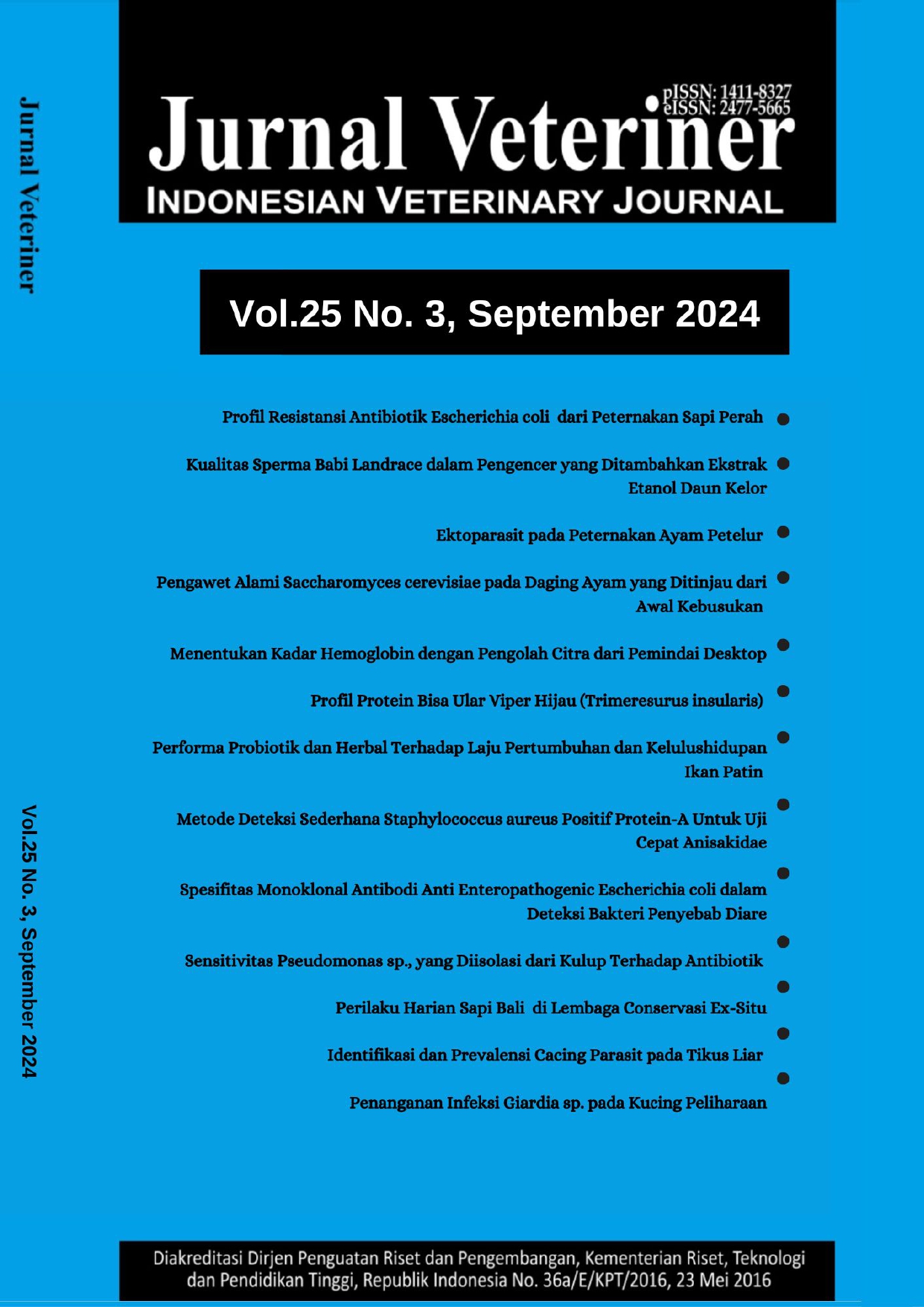The Daily Behavior of Bali Cattle (Bos sondaicus) at the Conservation Ex-Situ of PT Taman Satwa Kota Semarang
Abstract
Bali cattle are tropical animals that adapt to environmental changes in an effort to maintain survival. The presence of visitors at the conservation area affects the daily behavior of Bali cattle. The study was aimed to analyze the daily behavior of Bali cattle at the Conservation Ex-situ of PT Taman Satwa Kota Semarang under conditions of weekday and weekend; on weekdays (Monday to Friday) there were fewer visitors, and on weekends (Saturday to Sunday) there were more visitors. This study was conducted for 30 days, and behavior observation using the focal animal sampling method included eating behavior, group tendency behavior (allelomimetic) and avoidance behavior (agonistic), shelter seeking, and eliminative behavior. Cattle were observed for two hours at 10-minute intervals. Data analysis was carried out using the t-test at a significant level of 5%. The results of the study showed that visitor activity caused Bali cattle to tend to reduce their active movement and choose to remain silent away from the enclosure fence. The excitement of visitors on weekdays and weekends had a significant effect (P<0.05) on the duration of eating (foraging), agonistic, and eliminative behaviors, as well as the frequency of allelomimetic and eliminative behaviors. The conclusion of this study was that the elimination and group behavior of Bali cattle in conservation areas occurred more frequently and for longer durations on weekdays as an indicator that the cattle were uncomfortable, so it was necessary to limit visiting time in the cattle pen area, which may improve cattle welfare.



















